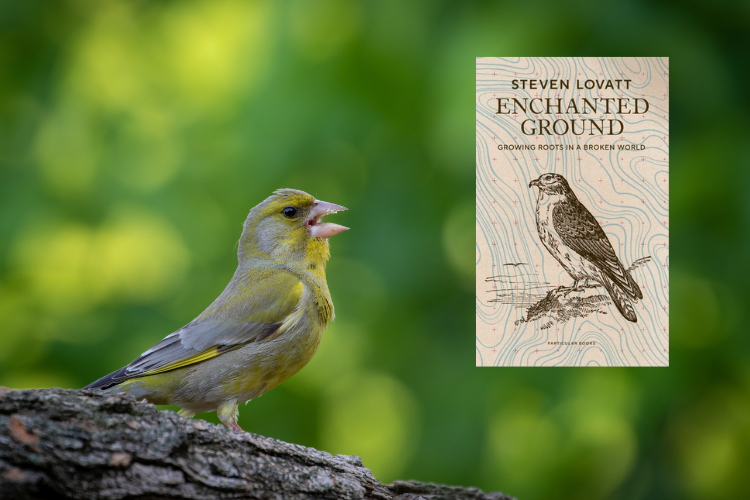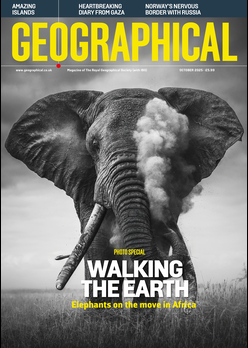
In his latest book, Enchanted Ground, Steven Lovatt weaves personal history together with striking commentary on the demise of planetary health
By
Nostalgia gets us all. Whether it’s reminiscing about a favourite childhood meal or fondly recalling a holiday, the past can often seem like a comforting – and safe – place to retreat to. For Steven Lovatt, the past is a place worth remembering and revisiting time and again. Grieving the loss of his grandmother, he returns to memories of fonder times – both personal and environmental – in an effort to find a sense of belonging and stability in a world that appears to be crumbling around him.
But it isn’t just the death of a family member that leaves Lovatt in emotional turmoil. There is a profound sense of pain and helplessness as he reflects on the state of the planet: a doom-stricken, decaying world. Wildfires rage through countries, heatwaves scorch cities and wreak havoc on wildlife. Rivers dry up. Floods sweep away neighbourhoods and villages.
Enjoying this article? Check out our related reads:
These two strands – the personal loss of his grandmother and the broader environmental collapse – weave together throughout Enchanted Ground as Lovatt searches for somewhere to belong.
Returning to his childhood home of Earlsdon in the Midlands, he finds refuge in memories of a wilder, more vibrant landscape: days spent frolicking in flourishing fields and forests, listening with anticipation to an abundance of birdsong. He expresses repeatedly how nature’s ‘pointless beauty’ offered him a deep sense of tranquillity and solace.
Yet this beauty has faded. Lovatt struggles with the visible demise of the nature he once knew – the birdsong now rare, the once-bustling natural spaces reduced to silence. These losses shadow him throughout the book, and they are not easily reconciled.
In one particularly vivid segment, he reflects on the construction of the M6 – a motorway project that bulldozed through vital ecosystems and devastated large areas of woodland. The resulting yawning stretch of loss is so deeply felt that it seems to physically double him over with grief.
But Lovatt doesn’t cling blindly to the past. As the narrative progresses, he begins to confront his own tendency to romanticise bygone eras. ‘I made a mistake in thinking that I could find somewhere to belong the way you find a parking space,’ he writes, acknowledging the limitations of nostalgia as a coping mechanism.
There are many threads running through this book. It’s rich in family history, touches on the present-day destruction of the natural world, and offers moments of philosophical musing. At times, these threads can feel a little scattered – as though the narrative strays from a clear through-line. Personally, I found myself wanting more detail on the environmental degradation of Earlsdon; these were some of the book’s most powerful moments, and ones that resonated with me as someone who regularly writes about the impact of human activity on the planet.
To best describe Enchanted Ground is to call it a memoir to both nature and personal history. It doesn’t shy away from the rawness of grief, nor does it sugarcoat the scale of ecological loss. And yet, Lovatt manages something many of us struggle with – removing the rose-tinted spectacles when looking back. In doing so, he reminds us that belonging isn’t confined to a single time or place. It can be found all around us – if we’re willing to see it.




